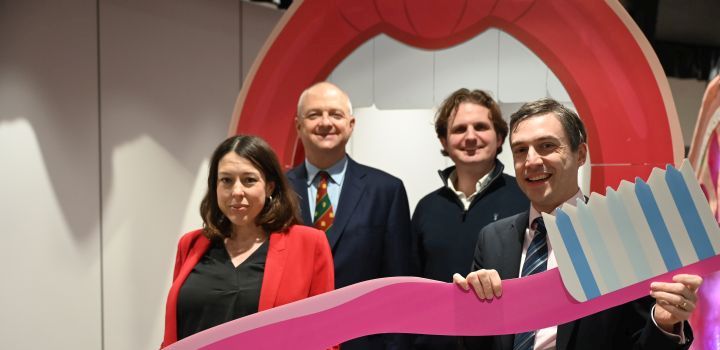UEA receives additional medical school places following government announcement
By: Communications

More medical school places will be available at University of East Anglia (UEA) as part of a push to deliver the future workforce the NHS requires.
On Monday (13 May), 350 additional medical school places were announced across England. 27 of those additional places will be created at UEA for the academic year 2025/26, joining UEA’s new Graduate Entry Medicine course.
Prof Charles ffrench-Constant, Pro-Vice-Chancellor for the Faculty of Medicine and Health Science at UEA, said:
“This is very welcome news and it is essential for training the next generation of doctors.
“UEA is concerned about health inequalities across the eastern region – particularly in rural and coastal areas - and we have been pushing for more investment in teaching opportunities for health professionals to improve people’s access to future NHS services.
“It shows that the Government recognises the need to increase the number of doctors trained across the East of England and it builds on our proud heritage and excellent portfolio of medical and allied health training. This course also helps to build on our civic commitment to our region and our desire to make medicine an accessible career.”
Graduate Entry Medicine courses have become well established across the UK as a way of widening participation to medicine whilst building on skills developed during undergraduate studies. As a result, Graduate Entry Medicine routes are four years in length, without compromising on quality.
The announcement is the next stage in delivering the NHS Long Term Workforce Plan commitments to double medical school places by 2031 and to level up the geographical spread of training places to help tackle unequal access to services.
UEA students will benefit from the immersive teaching spaces, improved preparation areas, and high-tech teaching facilities in the new Anatomy Suite, which is set to open in April 2025 in the Edith Cavell Building (ECB) on the UEA campus.
UEA has also committed to continuing to push to provide a Norwich dental school to serve the Eastern region.
Related Articles

UEA’s new high‑tech anatomy suite on schedule to open to students in September 2026
The University of East Anglia’s new high‑tech anatomy suite is on track to open to students in September 2026.
Read more
Norfolk MPs call on Government to urgently prioritise ‘underserved’ dental areas
A group of Norfolk MPs, all representing different political parties, have come together to call unanimously for the Government to prioritise the East of England in dental training.
Read more
UEA launches study after supplement shows promise in professional racing drivers
Researchers at the University of East Anglia (UEA) are launching a new study to see whether American ginseng extract could boost brain health.
Read more